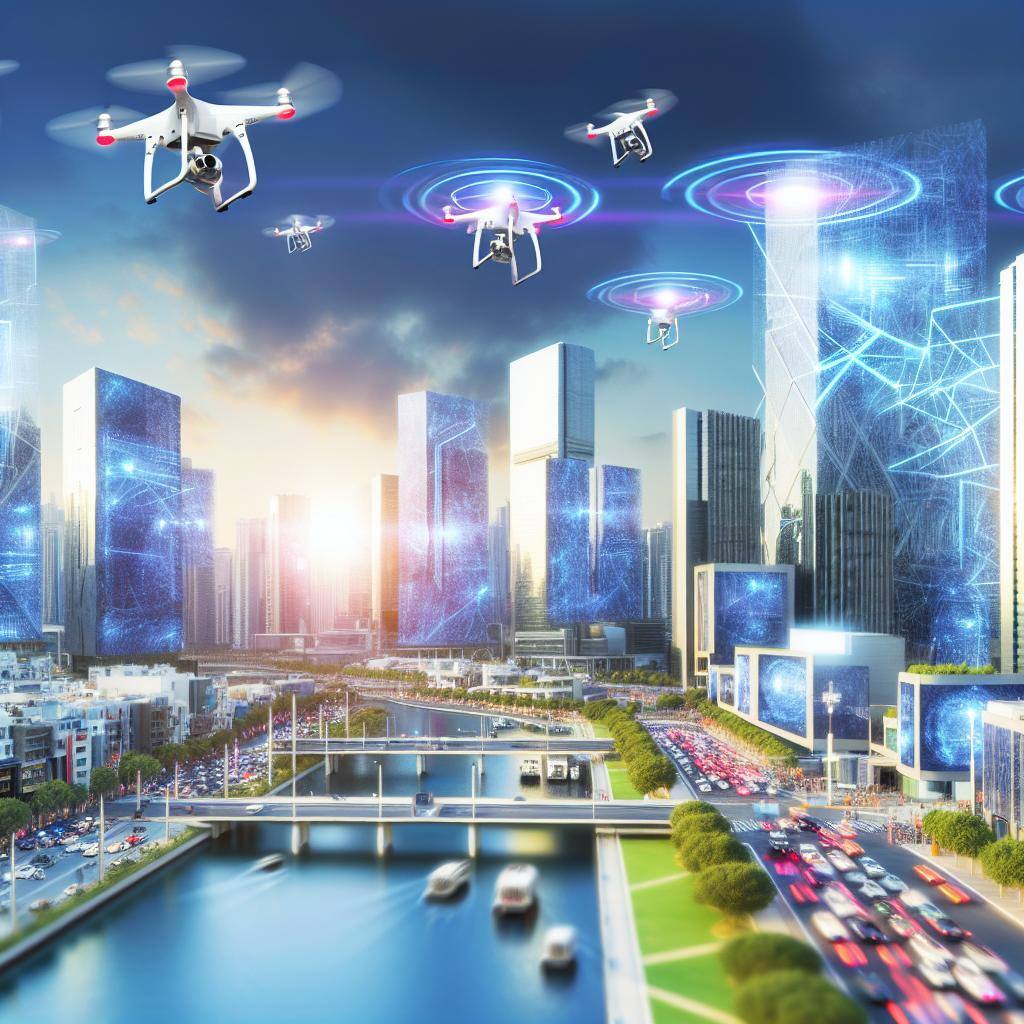Transforming Education: Impact of AI in Higher Education
Explore the growing influence of Artificial Intelligence in shaping the landscape of higher education.
3 min read
Pawani Attanayake : Jun 11, 2024 1:52:35 PM

Explore the cutting-edge advancements in artificial intelligence that are shaping the year 2024 and beyond.
In 2024, the field of artificial intelligence will witness a significant breakthrough with the rise of quantum AI computing. Quantum computing, a technology that leverages the principles of quantum mechanics, allows computers to perform complex calculations at an unprecedented speed. This revolutionary approach to computing has the potential to revolutionise the capabilities of AI systems.
One of the key advantages of quantum AI computing is its ability to handle vast amounts of data and process it in parallel. Traditional computers rely on binary digits, known as bits, to represent information as 0s and 1s. In contrast, quantum computers use quantum bits, or qubits, which can exist in multiple states simultaneously. This enables quantum AI systems to process and analyse complex data sets with unparalleled efficiency.
With the rise of quantum AI computing in 2024, we can expect AI algorithms to become more powerful and capable of solving complex problems that were previously beyond reach. This advancement holds immense potential for various industries, including finance, healthcare, and logistics, where AI-powered solutions can optimise operations and drive innovation.
As AI continues to advance in 2024, it is crucial to address the ethical considerations associated with its development. The rapid progress in AI technology raises concerns about privacy, bias, and accountability.
One of the key ethical considerations in AI development is the issue of privacy. With the increasing use of AI systems that analyse personal data, there is a need to ensure that individuals' privacy rights are protected. Striking the right balance between data-driven insights and privacy regulations will be a crucial challenge in the coming years.
Another important ethical consideration is the potential for bias in AI algorithms. AI systems learn from vast amounts of data, and if the training data is biased, it can result in biased decision-making. Addressing this issue requires careful data collection and algorithmic design to ensure fairness and eliminate bias.
Furthermore, as AI algorithms become more autonomous and make decisions that impact human lives, the question of accountability arises. There is a need for transparency and accountability frameworks to ensure that AI systems are accountable for their actions and decisions.
In 2024, addressing these ethical considerations will be vital to ensure that AI technology is developed and deployed in a responsible and ethical manner, benefiting society as a whole.
The year 2024 will witness remarkable advancements in AI-powered healthcare innovations. AI technology has the potential to revolutionise healthcare by improving diagnostics, personalised medicine, and patient care.
One of the key areas where AI is making a significant impact is medical imaging. AI algorithms can analyse medical images such as X-rays, MRIs, and CT scans with high accuracy, aiding in the early detection of diseases and guiding treatment decisions.
AI is also playing a crucial role in personalised medicine. By analysing large datasets, AI systems can identify patterns and predict individual responses to different treatments. This enables healthcare providers to tailor treatments to each patient, improving outcomes and reducing side effects.
Furthermore, AI-powered virtual assistants and chatbots are transforming patient care. These intelligent systems can provide personalised medical advice, answer common health-related questions, and even assist in remote monitoring of patients.
With the advancements in AI-powered healthcare innovations in 2024, we can expect improved diagnostics, personalised treatments, and enhanced patient care, ultimately leading to better health outcomes for individuals.
In 2024, the transportation industry will experience a revolutionary transformation with the widespread adoption of autonomous vehicles. AI technology is at the core of these self-driving vehicles, enabling them to navigate, make decisions, and interact with their surroundings without human intervention.
Autonomous vehicles have the potential to enhance road safety by eliminating human errors, which are responsible for a significant number of accidents. With advanced sensors, cameras, and AI algorithms, self-driving cars can detect and respond to potential hazards more quickly and efficiently.
Beyond safety, autonomous vehicles can also revolutionise transportation systems by improving traffic flow and reducing congestion. AI-powered algorithms can optimise routes, coordinate traffic signals, and enable vehicles to communicate with each other, leading to smoother and more efficient transportation networks.
Additionally, autonomous vehicles have the potential to transform the way we commute and travel. With self-driving cars, individuals can reclaim their time spent in traffic and engage in other activities while on the move. This can have significant implications for productivity, leisure, and overall quality of life.
With the advancements in autonomous vehicles in 2024, we can expect a paradigm shift in transportation, paving the way for safer, more efficient, and convenient mobility.
AI technology is set to enhance personalisation in various aspects of our lives in 2024. From personalised shopping experiences to tailored content recommendations, AI-powered systems will enable individuals to have more personalised interactions with technology.
One area where AI is making a significant impact is e-commerce. AI algorithms can analyse vast amounts of data, including purchase history, browsing behaviour, and demographic information, to provide personalised product recommendations and offers. This personalised approach not only improves the shopping experience but also increases customer satisfaction and loyalty.
AI-powered content recommendation systems are also transforming the way we consume digital content. By analysing user preferences and behaviour, these systems can suggest relevant articles, videos, and music, ensuring that individuals are presented with content that aligns with their interests and preferences.
Moreover, AI technology is enabling personalised learning experiences in education. Adaptive learning platforms leverage AI algorithms to tailor educational content and resources to the individual needs and learning styles of students. This personalised approach can enhance student engagement and improve learning outcomes.
In 2024, we can expect AI-powered systems to continue advancing personalisation, making our interactions with technology more tailored and meaningful.
Explore the growing influence of Artificial Intelligence in shaping the landscape of higher education.

Unlock the key to success by understanding the importance of business analysis services in today's competitive market.